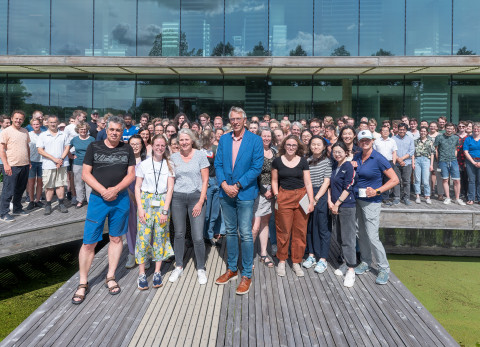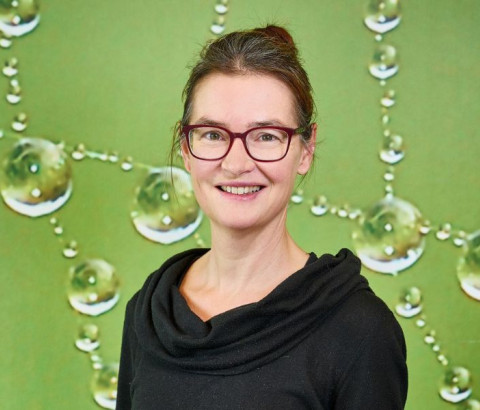Honorary fellows of NIOO-KNAW

Honorary fellows of NIOO-KNAW
The Netherlands Institute of Ecology (NIOO-KNAW) collaborates with many researchers in the Netherlands and abroad. The honorary fellows are a special category in this respect. From within their own institute or university, they collaborate with NIOO colleagues to strengthen the working field by sharing knowledge and ideas. Consequently, they also regularly conduct joint research at NIOO, set up new projects or publish research results together. We currently have eight talented honorary fellows.
Jetske de Boer
Fellow since 2024
Jetske de Boer has been working as an academic entomologist for 20 years, striving to connect her research with practical issues. Her research focuses on social issues surrounding insects, such as ecological solutions for pest control and the restoration of insect populations in different landscapes.
Antica Culina
Fellow since 2022
Antica Culina is a senior scientist at the Ruđer Bošković Institute in Croatia. She is an expert in evolutionary ecology: what do the relationships between organisms mean, which impact do events have during their lives, the analysis of scientific data and adopting standards for (open) data and (open) code. Culina especially wants to optimise research methods and make scientific data accessible. She is, for example, the joint founder of the SPI-Birds netwerk.
Jeroen Dickschat
Fellow since 2016
Jeroen Dickschat is Professor of Organic Chemistry and Biochemistry at the University of Bonn in Germany. He focuses on subjects such as biochemistry, biosynthesis, stereochemistry, mycobacteria and organic chemistry.
Carel Dieperink
Fellow since 2021
Carel Dieperink is a senior researcher and lecturer at the Environmental Governance Group of the Copernicus Institute of Utrecht University, the Netherlands. He focuses on water management and is particularly interested in the collaboration between national and international organisations dealing with water quality and quantity issues.
Eelke Jongejans
Fellow since 2021
Eelke Jongejans is Associate Professor of Animal Ecology & Physiology at Radboud University in Nijmegen, the Netherlands. His research primarily focuses on the impact of environmental drivers on population trends of birds and other organisms. Jongejans aims to understand how ecological and evolutionary processes at the individual level lead to changes in the population and uses models to provide the scientific basis for nature conservation.
Lauren McIntyre
Fellow since 2018
Lauren McIntyre is a professor at the University of Florida in the United States. With her research, she wants to gain a better understanding of phenotypes. These are the visible characteristics of an organism. She develops a systematic approach for the statistical analysis of genetic data of fruit flies, bacteria, plants and trees, for example. She wants to discover how genetic variation influences the differences in the phenotype.
Raúl Ochoa-Hueso
Fellow since 2021
Raúl Ochoa-Hueso is a researcher at the University of Cádiz in Spain, where he leads the Ecosystem Ecology Lab. He investigates how worldwide changes influence the biodiversity of terrestial ecosystems. His research focuses on communities of microorganisms, plants and soil animals and how these respond to changes in the soil and climate. In addition, he is interested in the impact of changes on soil fertility, nutrient cycles and carbon storage.
Gilles van Wezel
Fellow since 2014
Gilles van Wezel is Professor of Molecular Biotechnology at Leiden University, the Netherlands. He investigates bacteria that produce antibiotics to discover new antibiotics and improve the production of known antibiotics as well. Many soil fungi and certain bacteria produce antibiotics. These antibiotic-producing bacteria can be found in the soil, even in a teaspoon of garden soil.
How does it work?
- During their fellowship, honorary fellows are always welcome to work at NIOO and can, in principle, make use of the research facilities here.
- NIOO Honorary Research Fellows include both talented young researchers and experienced experts.
- Fellowships are granted for a period of three years with the possibility of an extension.
- NIOO director Stefan Dekker officially appoints the fellows.








